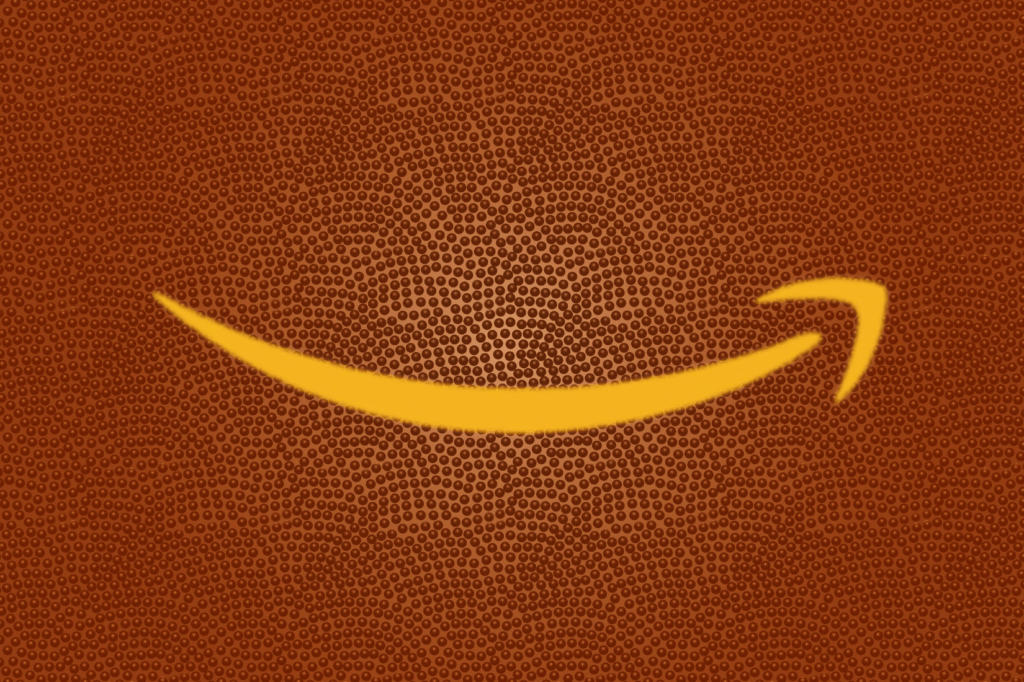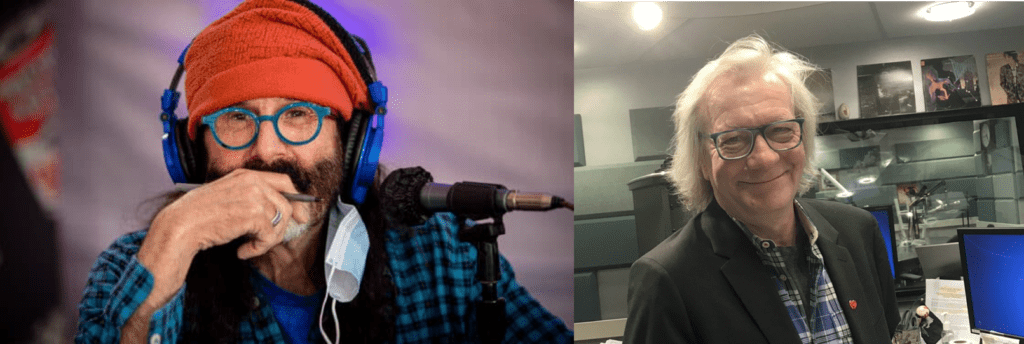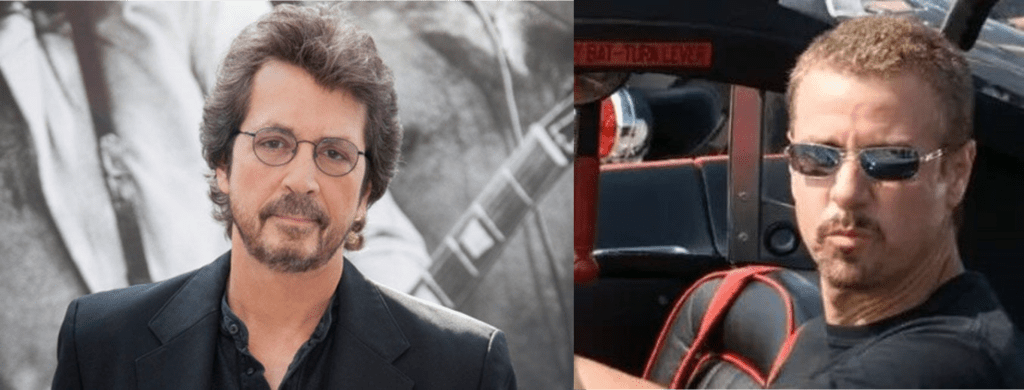
You don’t hear the word “exclusive” very often these days when discussing brands. Maybe that’s because there are so many of them, it has become nearly impossible for most to make that claim.
That’s especially true in radio, and more broadly, the getting-larger-by-the-moment audio entertainment and information platform. Streams, podcasts, audio books, new satellite radio channels – are all part of that growing ecosystem. Add to that the thousands of broadcast radio stations vying for time and attention, and you have a cornucopia of options.
So, what sets all of them apart from one another?
What is it about The Joe Rogan Show that makes it different from other podcasts fronted by witty, funny hosts?
What makes Apple Music different than Spotify?
Why was Rush Limbaugh on a different plane than the gaggle of other conservative talk show hosts?
What was it about the Beatles that made fans think they were something special, compared to the thousands of British Invasion contemporaries?
It comes down to this idea of exclusivity – a quality, an asset, even a vibe that speaks to the consumer, telling her there’s something unique about a brand.
Back when I was tasked with conjuring up compelling stories about the ratings, that was my mission – to find narratives that would motivate buyers and clients to want to engage with our station (or perhaps ignore a bad book).
In those diary days of the 1970s, one of the metrics I checked every time a book was delivered in the mail was “exclusive cume.” That was estimate of how many respondents (i.e., diarykeepers) only wrote down ONE radio station for the entire one-week survey window. It was a pretty amazing feat to be both highly rated and to own the bragging rights to an impressive “exclusive cume.”
of how many respondents (i.e., diarykeepers) only wrote down ONE radio station for the entire one-week survey window. It was a pretty amazing feat to be both highly rated and to own the bragging rights to an impressive “exclusive cume.”
As I came to learn, it wasn’t an especially trackable stat in those Arbitron surveys. In fact, it tended to bounce around a lot from book to book, making it difficult to draw any hard and fast conclusions about a brand.
Interestingly, “exclusive cume” doesn’t exist in the world of PPM. It’s not just that the larger markets tend to offer more radio options. It has more to do with the very nature of metered measurement that conspires against a respondent only hearing a single radio station – even during the course of just one day. Most people encounter more than one station along the pathway of their daily lives.
But that shouldn’t diminish a program director’s desire to create exclusive content, features, and benefits for their station brand. Given that most of us have an attention deficit disorder – especially when it comes to media choice – it becomes especially important to stand out (in a good way), and capture a consumer’s eye – and in this case, ear.
That’s why the news that Amazon is eyeing an exclusive deal to secure the rights to the NFL’s Thursday Night Football franchise is worth our attention. That would mean the game would only be available via Amazon’s Prime platform (along with local TV affiliates in each competing team’s markets). And that has immense value to a company that we once just thought of as an e-commerce or e-book player.
Amazon understands the value of exclusive franchises. There’s only one Twitch (at least for now) and only one Washington Post. Amazon created the Kindle e-reader, still the most popular of them all.
Securing an entire evening of NFL Football and drawing even more attention (and dollars) to Amazon Prime is great business, and a smart strategy to create even more separation with other tech players.
 So, a $1 billion offer to lock up a key night each week starting in 2023 to stream Thursday Night Football fits right into Amazon’s plans. While they have been first-movers on many fronts over the past couple decades, the Amazon brain trust knows it is always about exclusive content.
So, a $1 billion offer to lock up a key night each week starting in 2023 to stream Thursday Night Football fits right into Amazon’s plans. While they have been first-movers on many fronts over the past couple decades, the Amazon brain trust knows it is always about exclusive content.
CNBC reports Amazon already has a three-year deal in place with the NFL to stream a dozen games during the 2020-2021-2022 seasons – one of which each year is an exclusive game.
For Amazon, a billion dollar investment in the NFL is a rounding error. But it has no value if the deal isn’t exclusive. Amazon realizes there’s an abundance of sports content available to viewers on myriad devices. How do they stand out – what is special about their NFL games?
And that’s a question that every radio station in every market – commercial, public, Christian – should be asking itself in strategic reviews each year.
Whether it is having a distinct advantage in the crowded radio market where there’s much competition over precious ad revenue OR it is seeing the broader landscape of intensive media competition (satellite, streaming, podcasts) impacting every broadcast station, the question is of paramount importance that becomes more important with each passing year.
What’s your station’s special sauce?
What do you do that no one else can do? Who’s on your staff the other guys don’t have? What is the proprietary something you have that they don’t?
In this reality, “We play the most country music,” “We’re the Talk station,” and “We have less talk and fewer commercials” just won’t cut it.
What is it your brand delivers, offers, or features that consumers simply cannot get anywhere else?
Those are your franchise assets – your “special sauce” – the things you need to care for, nurture, lock up, and yes, even market every year. Because they are what sets your brand positively apart.
Savvy radio broadcasters have already figured this out, including locking up/extending key sports franchises. WIP/Entercom in Philadelphia just inked the Phillies to a multi-year extension. The team and the radio station first hooked up five years ago.
These sports franchises are part of the competitive framework of WIP’s ongoing tooth-and-nail battle against Beasley’s Fanatic, which carries the Flyers and Sixers games. Philly is one of the few markets in the country with two strong sports radio stations, so that battle for proprietary assets goes on 24/7/365.
For radio broadcasters, standing apart from the fray goes beyond sports – and often extends to events, charitable activities, concerts and festivals, and of course, personality.
 Down the hall from the Fanatic, Beasley’s WMMR just extended the contract of midday icon, Pierre Robert (left). The deal will pave the way for a 40 year celebration for both MMR and Pierre next year, a remarkable achievement that would not be possible without recognition from these are partnerships – not just talent agreements.
Down the hall from the Fanatic, Beasley’s WMMR just extended the contract of midday icon, Pierre Robert (left). The deal will pave the way for a 40 year celebration for both MMR and Pierre next year, a remarkable achievement that would not be possible without recognition from these are partnerships – not just talent agreements.
And in nearby New York City, iHeart’s Q104.3 just announced its new deal with morning fixture Jim Kerr (right), already the longest-running a.m. drive host in the market’s rich history. Jim (and co-host) Shelli Sonstein are market institutions at a time when New Yorkers need all the stability and comfort they can get.
While both MMR and Q104.3 are paragons in their respective towns, each enjoying strong ratings, management is only too aware of what makes each station special and different.
And there’s a darker side to all of this – what happens when the uniqueness of radio stations are shaken by losses? Two strong broadcasters lost their franchise players during the past ten days. iHeart’s KEGL/Dallas and Entercom’s WNCX/Cleveland are suffering from the deaths of Russ Martin (right) and Michael Stanley (left) respectively. And while both stations enjoyed success without these iconic personalities, their brands were strengthened and differentiated by them.
Martin had a roller coaster run in the Metroplex, enjoying success over the past decade at the Eagle. I never met him, but have worked with broadcasters who always respected his talent.
I knew and worked with Michael Stanley at WNCX, a true standout at his craft – and in other areas. Before becoming a fixture at NCX three decades ago, the Michael Stanley Band had big hits in the same spirit as fellow Midwest rockers, John Mellencamp and Bob Seger. Michael then went onto excel as a TV host before making afternoon drive his domain.
Amazingly, Michael had it all – he was a great musician and songwriter, smooth as silk on TV, and had a tremendous presence on the radio. Many rock stars have faced hurdles trying to transition to the radio airwaves. Michael set the standard. He was a natural, and had great voice, a font of stories, and rock star looks and presence.
Condolences to the families, friends, co-workers, and fans of both these guys. They helped build their stations, underscoring the value of unique personalities that strengthen their brands. Both KEGL and WNCX will soldier on. They are both strong stations that know the important lessons of franchise building.
All these events are related, and they reinforce the importance of radio stations creating and tending to their proprietary content, in whatever form it takes. If you’re working for a station that truly doesn’t have that exclusive something, the day will come when something different and better may very well come along. It’s time to start growing and developing whatever makes you special.
And if you’re fortunate enough to have a truly unique asset (or two), the passing of Russ Martin and Michael Stanley might serve as a reminder of the importance of celebrating your best assets while you still can.
The famous Joni Mitchell’s cautionary quote comes to mind:
“Don’t it always seem to go that you don’t know what you’ve got ’til it’s gone.”
It’s a warning we should all heed.
What’s so damn special about your radio station?
I hope you have the answer.
- What To Do If Your Radio Station Goes Through A Midlife Crisis - April 25, 2025
- A 2020 Lesson?It Could All Be Gone In A Flash - April 24, 2025
- How AI Can Give Radio Personalities More…PERSONALITY - April 23, 2025




ty Fred! you made my International Women’s Day. Now, if only I could get my name on the show after close to 44 years since I first walked into Jim’s studio!
Mazel tov, Shelli & congrats on a tremendous run!
In the words of Russ Martin”
Are we on the air?
Yeah? Ok, this is why we have such high ratings. We keep em guessing. ( bottle cork pops)
Thanks for the glimpse at Russ Martin’s genius, Tim.